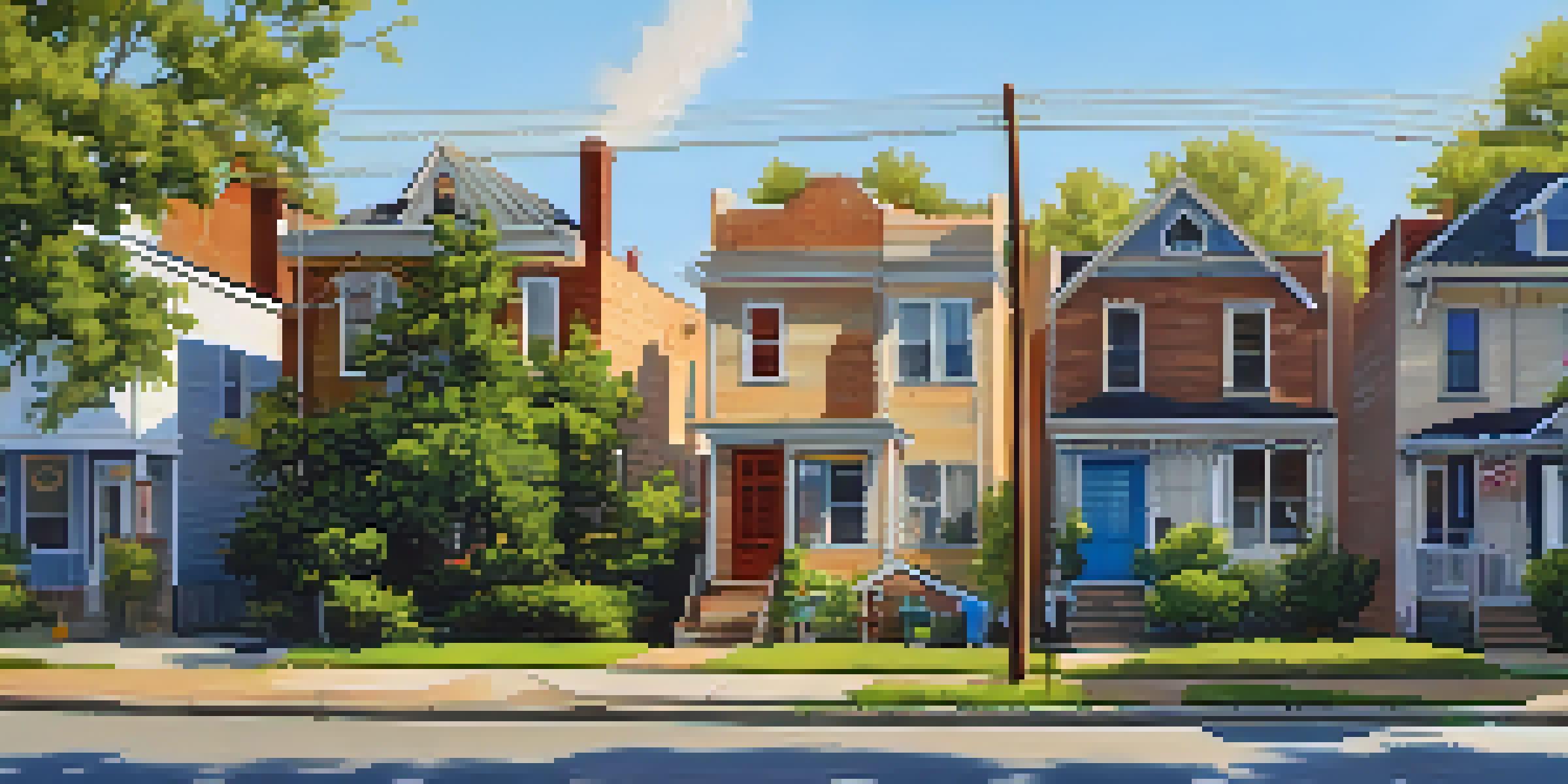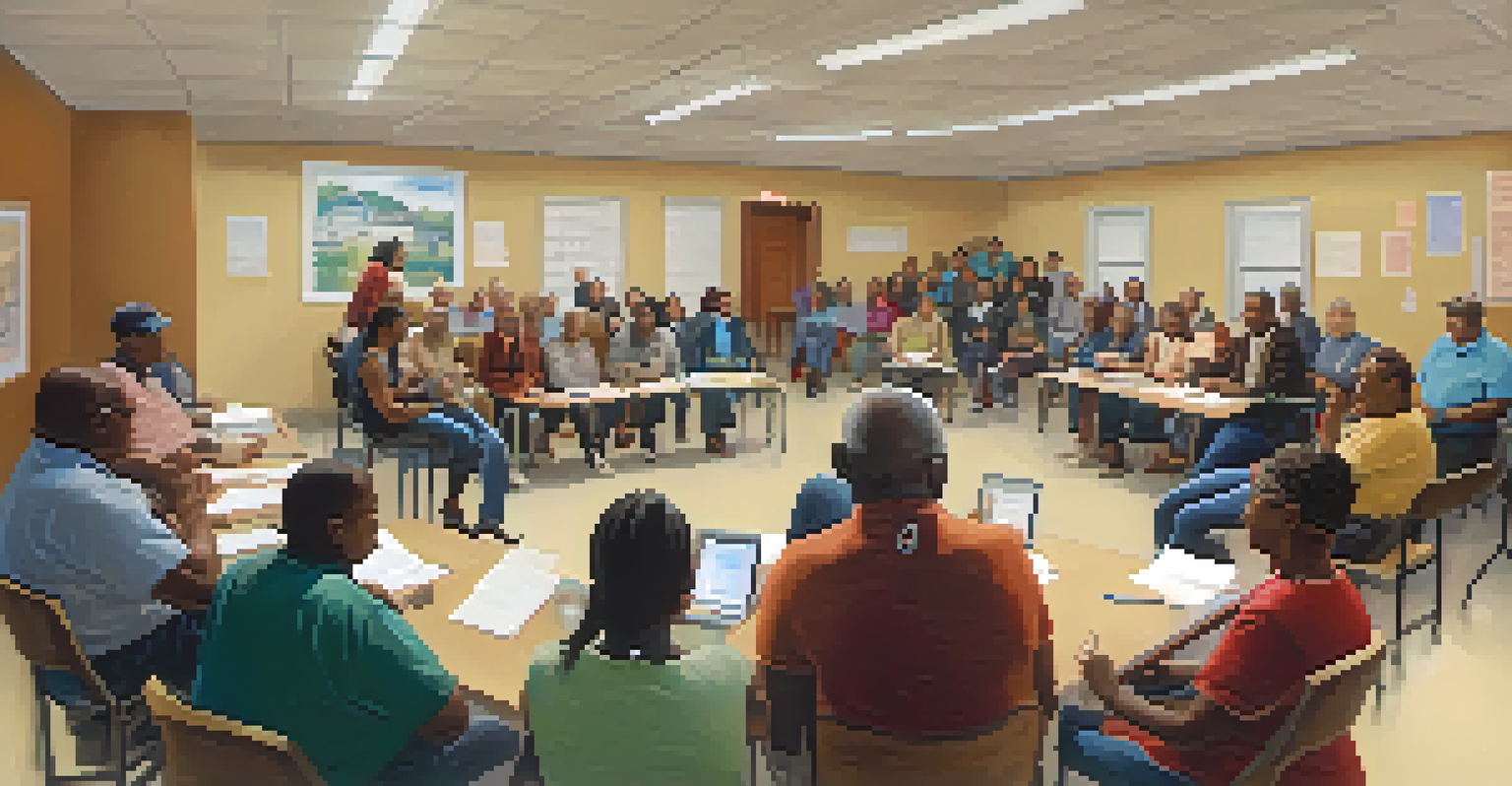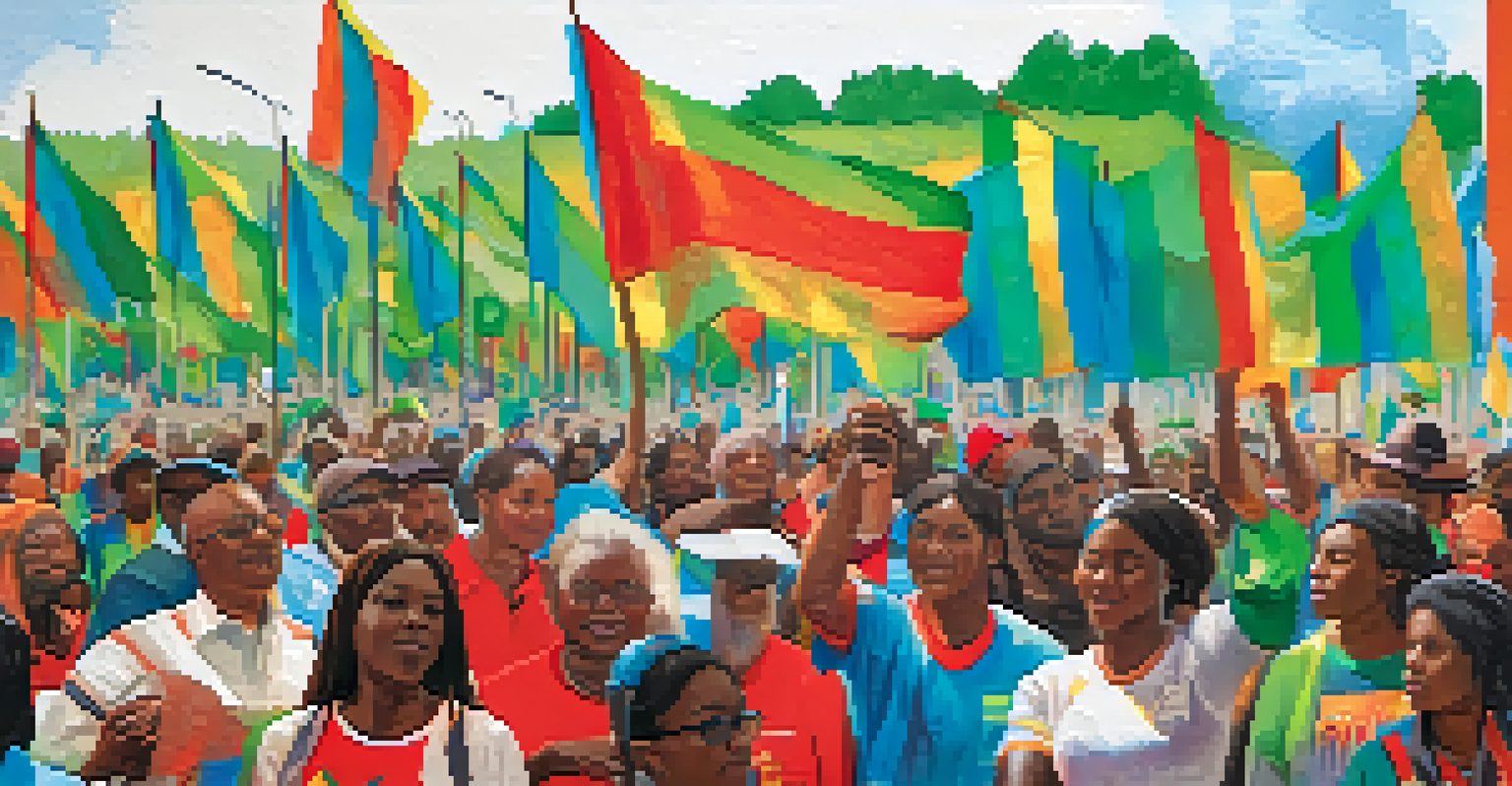Exploring Housing Inequality in Dallas: Causes and Solutions

Understanding Housing Inequality in Dallas
Housing inequality in Dallas is a pressing issue that affects many residents. It refers to the unequal access to quality housing based on factors such as income, race, and geography. This disparity not only impacts individuals and families but also the overall health and vibrancy of the community.
Housing is a human right, not a privilege.
In Dallas, the divide between affluent neighborhoods and low-income areas is stark. For instance, while some communities boast well-maintained homes and excellent schools, others struggle with dilapidated housing and limited resources. This inequality creates a cycle that is hard to break, leading to increased poverty and reduced opportunities for residents.
To truly grasp the gravity of this situation, we must look beyond the surface. Housing inequality is not just about where one lives; it's about access to education, healthcare, and employment opportunities, all of which are deeply intertwined with where people can afford to reside.
Historical Context of Housing Inequality
To understand the current state of housing inequality in Dallas, it's crucial to examine its historical roots. Decades of discriminatory practices, such as redlining, have systematically marginalized certain communities, particularly those of color. This practice denied many residents mortgages and insurance, limiting their ability to buy homes in better neighborhoods.

Additionally, urban development policies have often favored wealthier areas, leading to gentrification that displaces lower-income families. As neighborhoods undergo revitalization, original residents frequently find themselves priced out of their own communities. This historical context is essential in recognizing why these disparities persist today.
Housing Inequality Affects All
Housing inequality in Dallas impacts not only individuals and families but also the overall health and vibrancy of the community.
Thus, acknowledging the past is not just an academic exercise; it informs our understanding of present-day challenges. By knowing how these patterns originated, we can better strategize solutions that aim for equity in housing access.
Economic Factors Contributing to Inequality
Economic factors are a significant driver of housing inequality in Dallas. The rising cost of living, coupled with stagnant wages for many workers, has made it increasingly difficult for families to find affordable housing. This economic pressure forces individuals to make tough choices, often sacrificing quality for affordability.
The best way to predict your future is to create it.
Moreover, the job market in Dallas, while booming in certain sectors, does not provide equal opportunities for all residents. Low-wage jobs often lack benefits and stability, leaving workers vulnerable and unable to invest in long-term housing solutions. This economic divide exacerbates the existing housing crisis, contributing to a growing wealth gap.
As a result, many families find themselves in a cycle of renting without the possibility of saving for a down payment on a home. This cycle not only perpetuates inequality but also limits economic mobility, trapping individuals in the very neighborhoods they wish to escape.
Policy Failures and Their Impact
Policy failures have played a pivotal role in perpetuating housing inequality in Dallas. Zoning laws, for instance, often favor single-family homes, restricting the development of affordable housing options. This lack of affordable units creates a bottleneck, pushing lower-income families into less desirable areas with fewer resources.
Moreover, insufficient investment in public housing initiatives has left many without viable options. When affordable housing is not prioritized, families are forced to seek shelter in overcrowded or unsafe conditions, further harming their well-being. These policy shortcomings highlight the need for a comprehensive approach to housing reform.
Historical Disparities Persist Today
Decades of discriminatory practices and urban development policies have contributed to the ongoing housing disparities faced by many residents.
Addressing these failures requires collaboration between city officials, community organizations, and residents. By advocating for policy changes that promote equitable housing practices, we can begin to dismantle the barriers that have historically marginalized many Dallas residents.
The Role of Community Organizations
Community organizations play a vital role in addressing housing inequality in Dallas. These groups work on the ground to provide resources, support, and advocacy for those affected by housing disparities. From offering legal assistance to organizing community meetings, their efforts help empower residents and amplify their voices.
An example of this is the work done by local nonprofit organizations that focus on affordable housing development. They not only build homes but also create programs that educate families about financial literacy and homeownership. This holistic approach fosters a sense of community and equips residents with the tools they need to improve their living situations.
Furthermore, community organizations often serve as a bridge between residents and policymakers. By facilitating dialogue and sharing the lived experiences of those impacted by housing inequality, they help ensure that solutions are both informed and inclusive.
Innovative Solutions to Housing Inequality
Addressing housing inequality requires innovative solutions that go beyond traditional approaches. One promising strategy is the concept of mixed-income housing, which integrates various income levels within the same community. This model not only fosters diversity but also allows for shared resources and opportunities.
Another effective solution is the implementation of housing vouchers, which help low-income families afford rent in the private market. By providing these financial aids, cities can ensure that families have access to better neighborhoods with more resources. However, for this to work effectively, there needs to be a sufficient supply of affordable housing options available.
Community Action Drives Change
Community organizations play a crucial role in addressing housing inequality by providing resources, support, and advocacy for affected residents.
Ultimately, the key is collaboration among various stakeholders, including government agencies, private developers, and community organizations. By working together to explore and implement innovative strategies, we can begin to make significant strides toward reducing housing inequality in Dallas.
The Future of Housing in Dallas
The future of housing in Dallas hinges on our collective commitment to addressing inequality. As the city continues to grow, it faces the challenge of ensuring that all residents have access to affordable and quality housing. This requires a shift in mindset, prioritizing equitable development that benefits everyone.
Moreover, community engagement will be crucial in shaping future housing policies. By involving residents in the decision-making process, we can create solutions that reflect the needs and desires of those most affected by housing inequality. This grassroots approach fosters ownership and accountability, leading to more sustainable outcomes.

In conclusion, while the road ahead may be challenging, there is hope. With a concerted effort from all sectors of society, we can work toward a more equitable housing landscape in Dallas, where everyone has a place to call home.